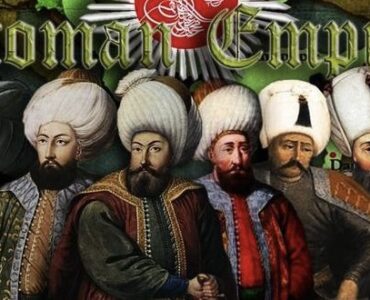
Ishikism
Ishikism (also known as Chinarism or Ishik Alevism), a religious movement within Alevism that rejects its Islamic roots, is found in Turkey. Ishikīs consider themselves to esotericists, claiming that Alevism is esotericism itself, meaning that they identify themselves with every type of esotericism in history. They claim that Alevism is the oldest religion in the world, that has changed shapes throughout time. This “First and True Religion” of the world, is claimed by Ishikís to have been a main source for all other religions and beliefs in the world.
Ishikism is a syncretic religious movement among Alevis who have developed an alternative understanding of Alevism and its history. These alternative interpretations and beliefs were inspired by Turkish writer Erdoğan Çınar with the publication of his book Aleviliğin Gizli Tarihi (The Secret History of Alevism) in 2004.
Çınar and his book received lots of criticism from Alevis and Alevi Dedes (for example Baki Güngör dede, who claim that his book is full of lies and contradictions and consider it as yet another attempt of atheistic Yolyezidler (enemies of the Path) to assimilate the Alevis and to separate them from the mystic teachings of Haji Bektash Veli, Pir Sultan Abdal, Yunus Emre, the Twelve Imams, etc.
The Ishik movement claim that the term “Alevi” is derived from the old Anatolian Luvians, claiming that the word “Luvi” means “People of light” in the Hittite language. Some Ottoman documents from the 16th century refer to the ancestors of today’s Alevis as “Işık Taifesi,” meaning “People of Light.” This is, according to Ishikīs, a proof of the connection between the Luvians and Alevis.
Mainstream Alevis reject all of this. They consider the term “Alevi” to mean “follower of Ali”, as in the Arabic word ‘Alawī. They further consider themselves followers of the teachings and practices of 13th century Alevi saint Haji Bektash Veli.
Self-image
Ishikīs consider themselves to be esotericists, claiming that Alevism is Esotericism itself, meaning that they identify themselves with every type of esotericism in history (e.g. Jewish esotericists, Christian esotericists, Islamic and Pagan esotericism etc.).
They claim that Alevis is the oldest religion in the world, that has changed shapes throughout time. This “First and True Religion” of the world, is claimed to have been the main source for all other religions and beliefs in the world:
It has now been brought into the open with all its truth, that Alevism, with its tens of thousands of years of history, has influenced all beliefs and has been the Original Source (the so-called “Serçeşme” – meaning “Beginning Spot of Fountain”) of the celestial religions. — Erdoğan Çınar in: Aleviliğin Gizli Tarihi, 2004.
The Ishikīs also claim that the religious ceremonies practiced by Alevis were practiced as early as by the Hittites and even by the Sumerians. According to Ishikīs, medieval Christian sects as Paulicianism, Bogomilism, etc., were also Alevis. A good example of this belief can be found in the translation of the book The Cathars: The Most Successful Heresy of the Middle Ages (2005) by Sean Martin. Even though the original English version does not contain the word “Alevi,” the Turkish translator has translated the title of the book as Ortaçağ’da Avrupa’da Alevi Hareketi – Katharlar (An Alevi Movement in The Middle Ages – The Cathars).
Historical Beliefs
Compared to traditional Alevism, the most striking differences of the Ishik movement are their interpretation of history. The Ishik movement claims that Alevis have changed their apparent identity several times in history in order to survive. According to Ishikī belief, heretic sects like the Paulicians and Bogomils were actually Alevis compelled to appear as Christians because of the Byzantine oppression. Likewise the modern Alevis have gained an Islamic appearance because of the Ottoman oppression.
Ishikī thought is convinced that most heterodox groups are inventions as a result of oppression, meaning that groups like the Ghulāt, Ahl-e Haqq, Ismā’īlī, Nusayrī Alawism and Bektashism are in reality separate from real Islam.
Criticism
The Ishikī versus Traditionalist split has caused a deep gap in Alevi society. This is the first time in centuries that Alevis have experienced such a great split in terms of beliefs.
Traditionalist Alevis have strongly opposed the Ishikīs, who they consider as people who are creating a completely new religion, or sometimes as undercover agents, trying to disrupt Alevi unity. Ishikīs are also criticized for being extremely political and for abandoning fundamental Alevi sources, such as the Buyruks, one of the most known written source among Alevis.
The Alevi historian, Hamza Aksüt, responded to the works of Erdoğan Çınar in several articles, criticizing him for being intentionally manipulative and highly conspirational.
Some traditionalists have even gone so far as to demand that Ishikī dedes like Hasan Kılavuz gets the penalty of social exclusion which in reality does not correspond with the actual welcoming nature of Alevisim.
Ishikī Dedes
Even though most dedes are still traditionalists, some of them have eventually adopted Ishikī thought. The first dedes who openly declared their non-traditionalist beliefs were Ali Haydar Cilasun, with the publication of his book Alevilik Bir Sır Değildir (Alevism is Not a Secret) in 1995, and Hasan Kılavuz in 2003. The latter is now one of the prominent figures in the Alevi Confederation of Europe (AABK) and its television channel YOL TV.
Ishikī Organizations
The Ishik movement have succeeded in becoming very influential in important and powerful Alevi organizations. The Alevi Confederation of Europe (AABK) for instance, has abandoned its traditional Alevi beliefs in 2006, which it replaced with a marginal Ishikī type of understanding. Recently some Alevi organizations in Turkey have also changed their definitions of Alevism.
Ishikism
513 – 006
https://discerning-Islam.org
Last Update: 04/2021




